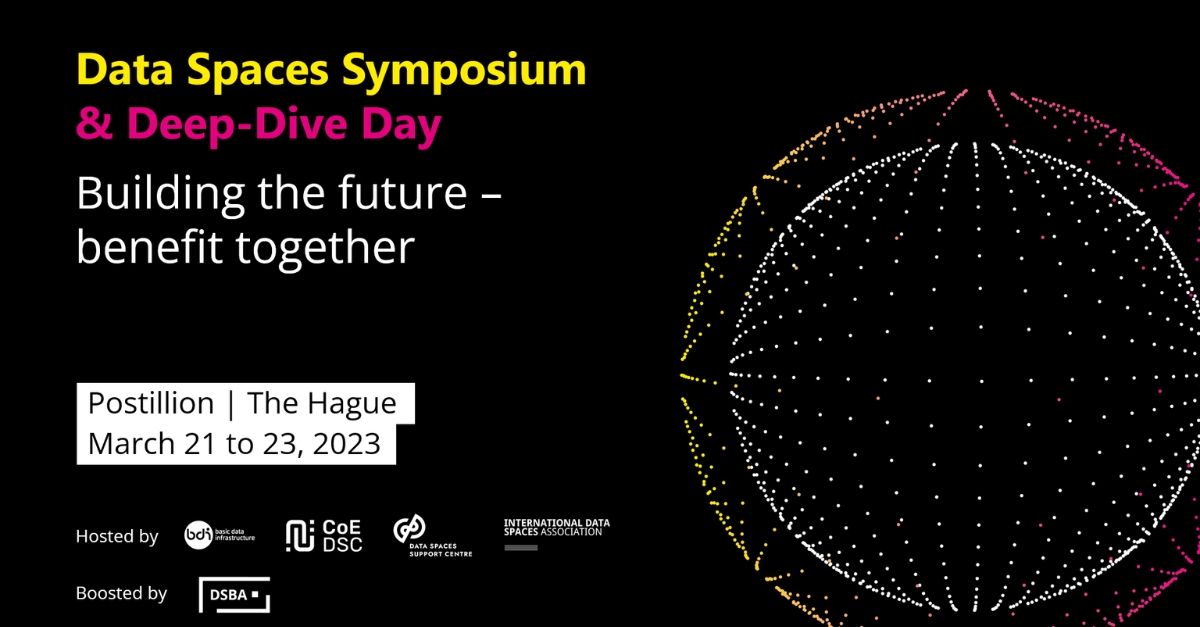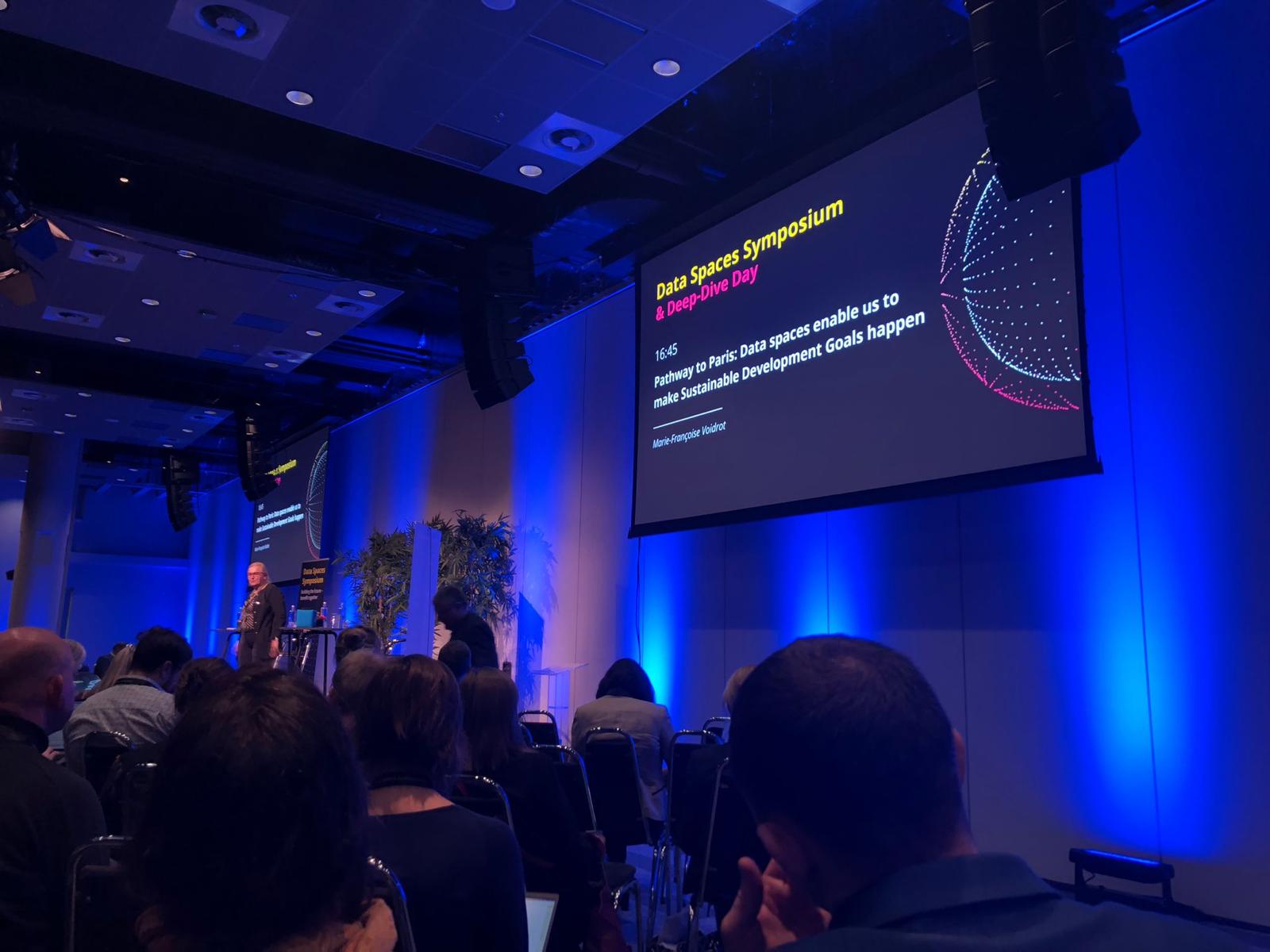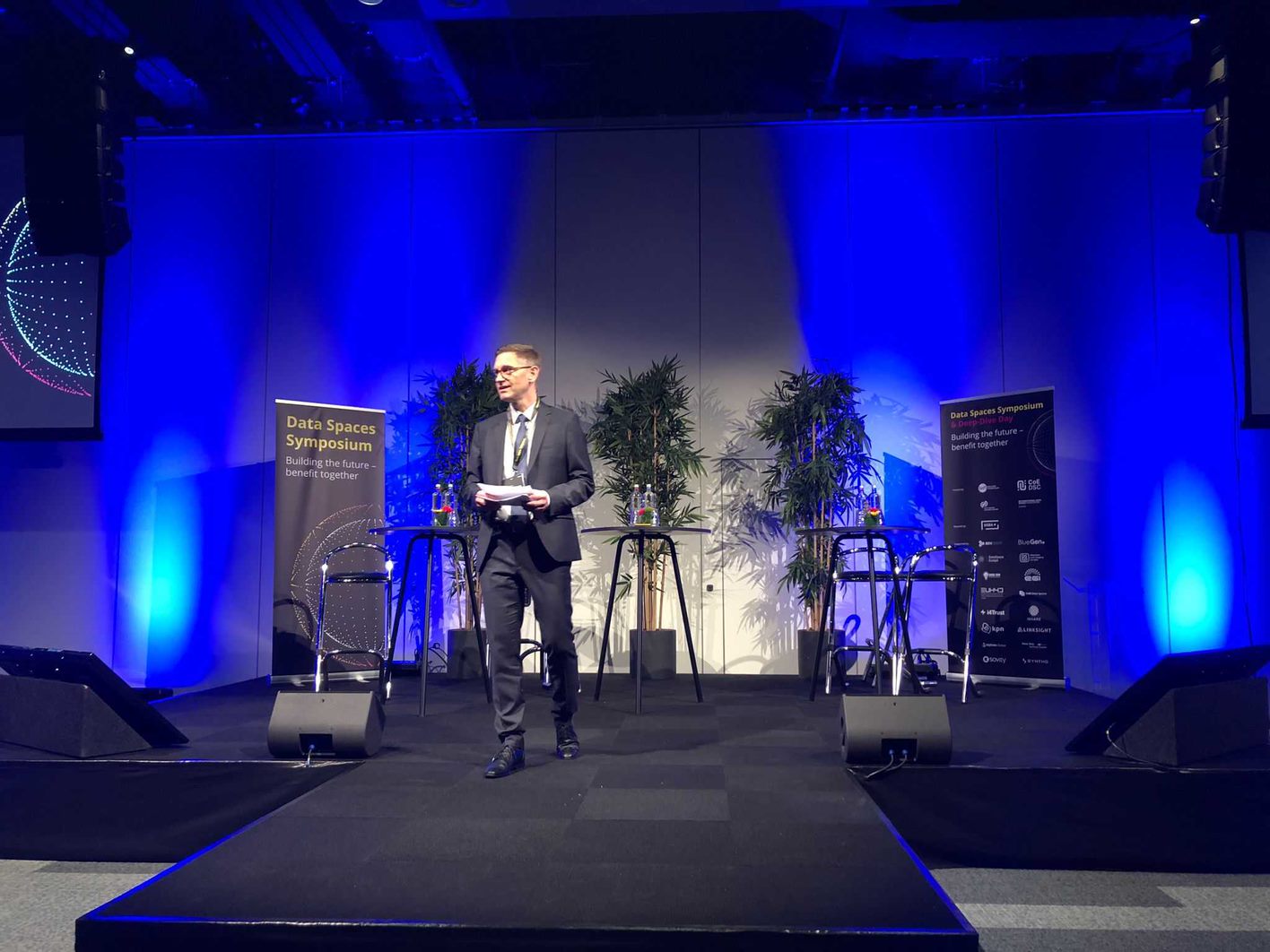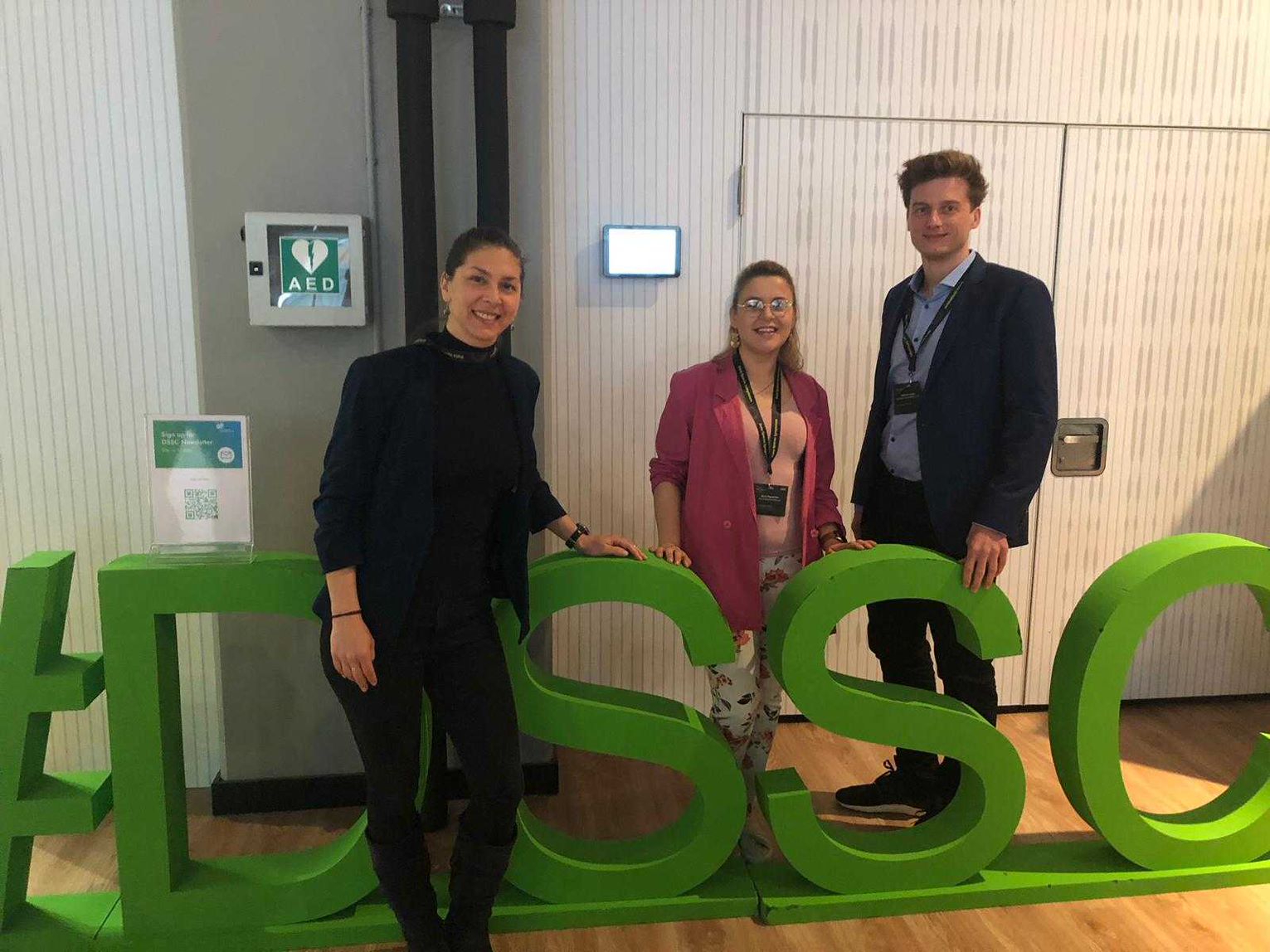Last week from March 21st to 23rd the largest event on data spaces took place in Den Haag. The event was hosted by the Center of Excellence for Data Sharing and Cloud (TNO), International Data Spaces Association (IDSA), the Basic Data Infrastructure network (BDI) and the Data Spaces Support Centre (DSSC), boosted by the Data Spaces Business Alliance (DSBA), organized together with EUHubs4Data and MyData Global – all relevant data sharing initiatives and endeavors at one place.
Data Spaces Symposium was an ideal event for getting involved in aligning the diverse landscape of data space initiatives, learning from successfully running data space projects and discovering the business benefits of sovereign data sharing.
Data spaces will be a paradigm shift!
The vision is to make all solutions interoperable with each other to create a successful European data service ecosystem.
The main message was: Get going and make the vision reality. Many speakers highlighted the importance of FAIR, TRUST and CARE principles. Also (semantic) interoperability in and between data spaces was particularly emphasized.
Here are some key learnings from the event:
Four layers of data spaces governance
Many experts agree that the Data Governance Act (DGA) has the potential to become a global standard for data usage. Being a central element of the European Strategy for Data, the DGA aims at establishing the concept of data sovereignty. There are four layers which are included when data space governance is framed:
Establishing trust in data space
A data space needs to define policies that specify what attributes an applicant must meet to become a trusted participant. This is achieved through Data Space Self-Description (DSSD). DSSD allows new members to provide attributes in their Participant Self-Description (PSD) in a format that can be understood by the Data Space Authority (DSA). Deciding which trust anchors and trust frameworks, and thus which rules and procedures of issuing and validating attributes are used, is the responsibility of the DSA and of the participants of the data space.
The DSA is responsible for:
- Establishing the policies and rules of the data space
- Issuing membership credentials
- Regulating the lifecycle of membership (participant discoverability, issuing of membership credentials, verification services for membership proofs)
DSA also provides other optional services: observability and auditing, brokering and marketplaces, providing vocabularies or other services required by the data space members.
3+1 rule for clear data space value cases
Dataspace solutions will only succeed if all components are in place.
Machine applications and data sharing
Producing companies currently face big hurdles, strict security regulations, imposed internally and externally. The challenge is to lower the hurdles by providing targeted solutions that give insights where data resides with what protection level.
Solutions shall implement:
- Communication mechanisms that can pass install
- A trusted infrastructure with machine vendor spec
- A way for the factory and/or machine vendor to stay in control
We were part of the Data Spaces Support Centre (DSSC) annual conference which was packed with beautiful formats, breakout sessions with many insights and a dynamic social dinner. A personal highlight for us was that many of the other participants already knew DIO and the Green Data Hub.








